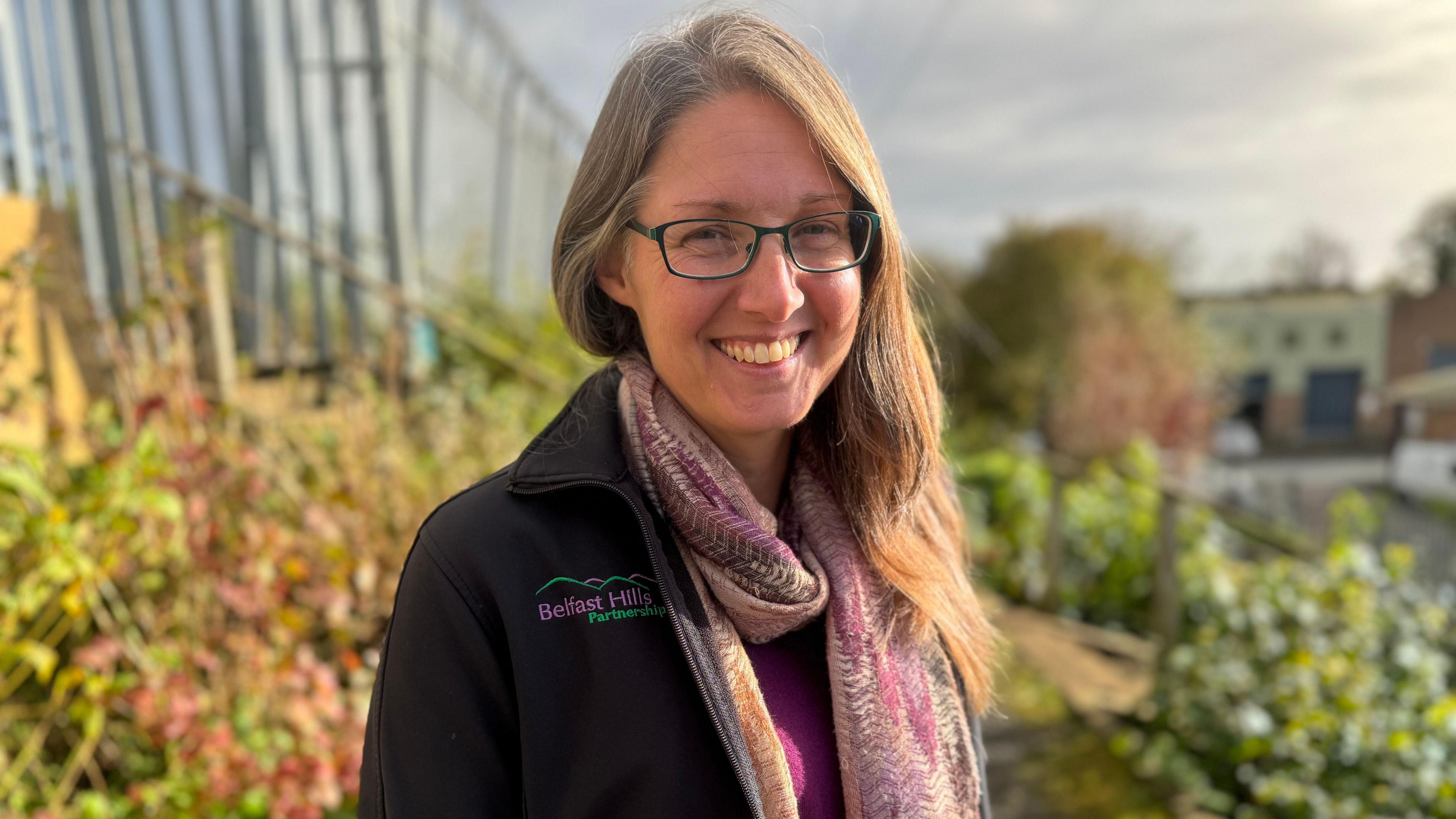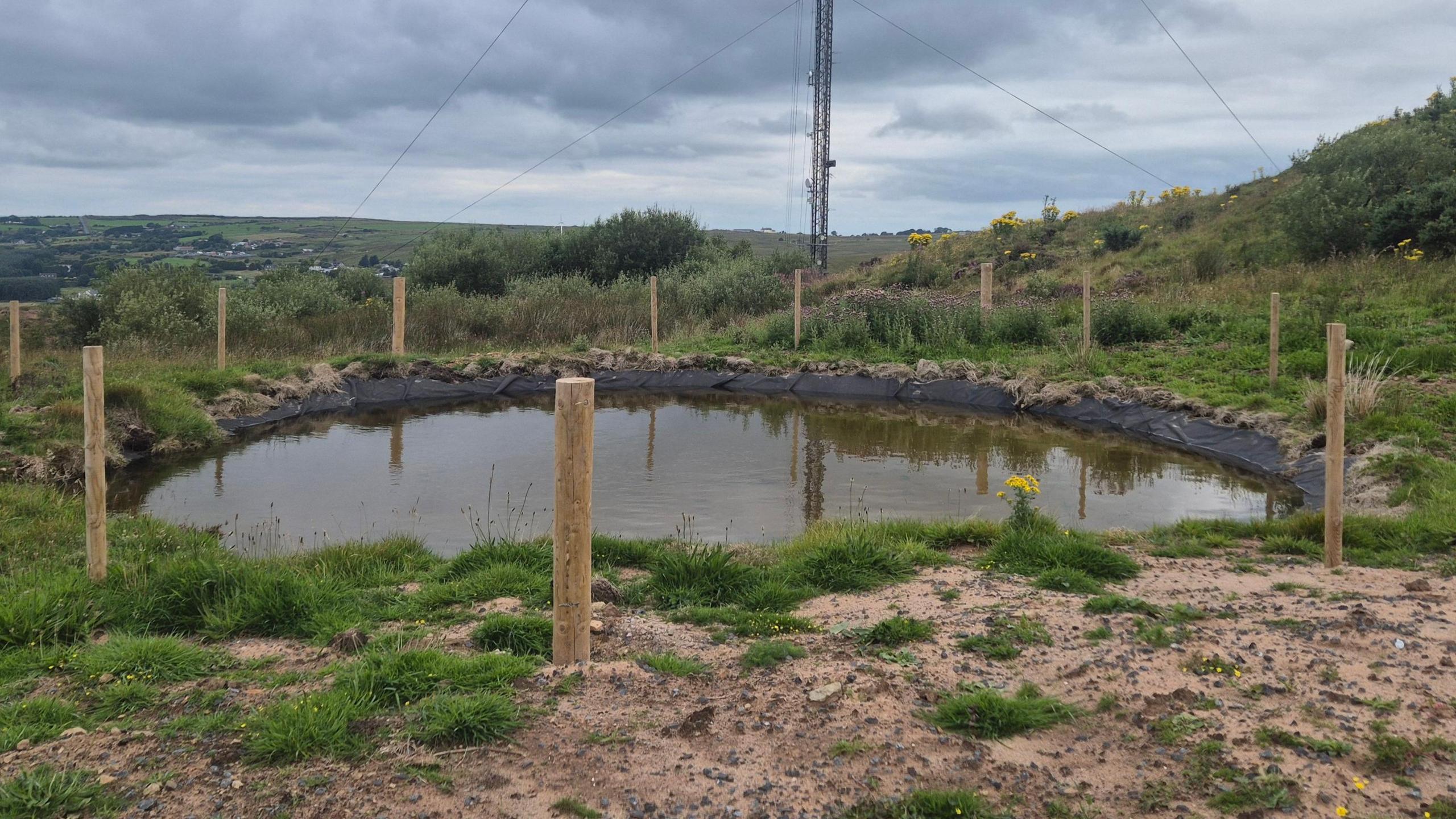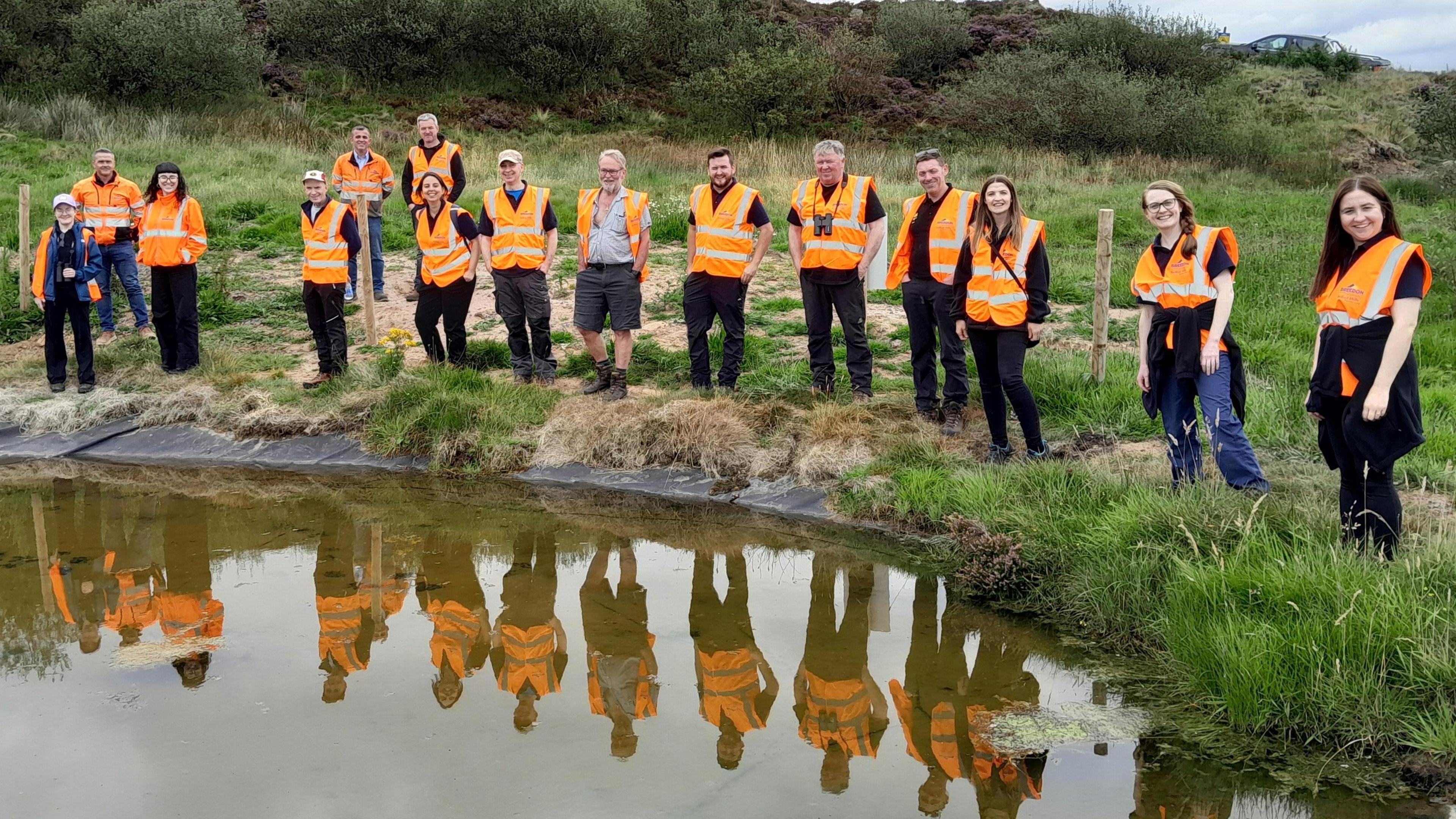Belfast Hills receive almost £1m in nature recovery funding

Dr Lizzy Pinkerton says they want to "go beyond" the public sites that have already been developed in the Belfast Hills
- Published
Almost £1m in Nature Recovery Challenge funding has made "a pretty good" twentieth birthday present for the Belfast Hills Partnership (BHP).
Two of the group's projects are among a total of 11, sharing more than £3.2m allocated by the Department of Agriculture, Environment and Rural Affairs (DAERA) over the next three years.
Northern Ireland is one of the most nature-depleted areas in the world, with 12% of species at risk of extinction.
Dr Lizzy Pinkerton, from the BHP, said the money was "a wonderful opportunity" to develop work the organisation has already been doing.
"For us most importantly, it is the relationships that we've been building up with all the different sectors and the people and the landowners on the hills," Dr Pinkerton said.
The other nine projects include a habitat improvement project in Antrim, woodland support in Fermanagh and a biodiversity initiative in Belfast.
Environment Minister Andrew Muir said there had been "many applications" for the fund and the investment would "give a much-needed boost" to nature and biodiversity recovery.
'All the help it can get'

The BHP has already worked with another group to create two ponds at a quarry on Black Mountain, and newts have recently been found there
One of the BHP projects focuses on the Crumlin River, which rises on Divis Mountain and flows about 13 miles into Lough Neagh.
Dr Pinkerton said with the lough needing "all the help it can get at the moment," landowners along the Crumlin River could play a part.
"One of the main things is creating the baseline understanding of what exactly we've got, what the water quality is in various different areas, where the problem points might be," she said.
She added that it is important to work "with the landowners to do things like riparian tree-planting, protecting the edges of the river against erosion and run-off, creating sections that will be more suitable for fish-breeding and different birds".

Belfast Hills Partnership board members at one of the ponds
The group's second project is aimed at meeting the 30 by 30 global target set at the UN Biodiversity Summit (COP15) in 2022.
The UK has committed to the goal, which requires 30% of land and sea to be protected and managed for nature by 2030.
Dr Pinkerton said the group wants to "go beyond" the public sites that have already been developed in the Belfast Hills.
"We want to support small bits of land in between those public sites, whether it's a quarry, whether it's a farm, there's a few little community allotments and there's other private bits of land.
"We want to work with those landowners to really help them understand what nature they have on their own sites and how they can be looking after it better."
'It's brilliant'
The work will involve surveys to create management plans for the sites and establish a baseline for measurement.
The BHP has already worked with another group to create two ponds at a quarry on Black Mountain, and newts have recently been found there.
"It's brilliant that wildlife is already moving into these new homes that we're creating for them," said Dr Pinkerton.
The other groups receiving funding include the RSPB, the Woodland Trust, three different councils, Queen's University Belfast and the National Trust.